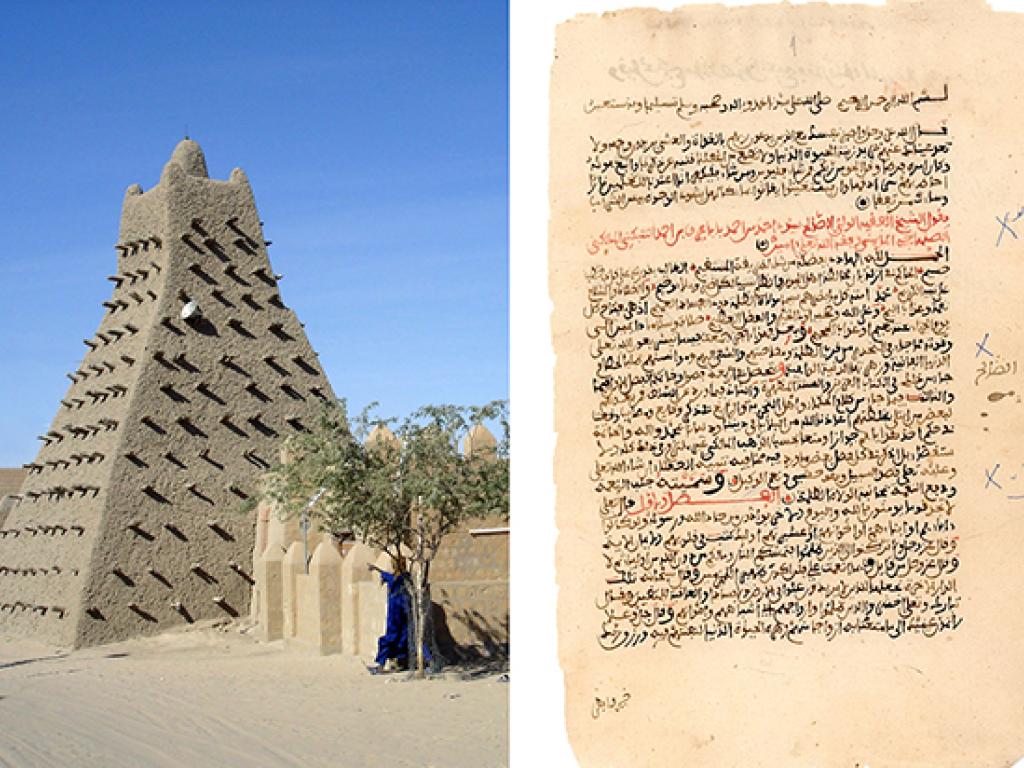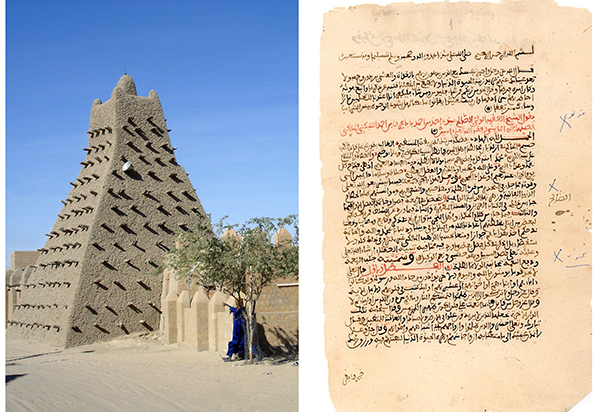Timbuktu, the Scholar and Rulers, by Shamil Jeppie


Shamil Jeppie, University of Cape Town
Part of the Silsila Fall 2020 Lecture Series, Islam in Africa: Material Histories
Aḥmad Bābā (d.1627) is the most famous scholar from the West African desert-edge, Sahelian town of Timbuktu. He was recognized as a scholar well-beyond his town and the immediate region; his name was known among scholars also in Marrakesh. When the Sa’adian rulers based in that town ordered the invasion of Timbuktu and other locations in its environs Bābā was captured and sent into exile in Marrakesh along with his family and his books were seized. Dozens of works are attributed to him but hardly any of his works have been edited and published or translated. His fatwa (legal opinion) dealing with slavery has been edited and translated into English, and two texts edited and translated into French. The availability of his material is obviously a challenge to a greater appreciation of his work. The presentation shall focus on a text by him on the relationship of scholars with rulers. Why did he write it when he did? What are the specific sources he uses in the work? Is it possible to say anything about its circulation or readership? I shall also discuss issues relating to the material conditions (codicology) of extant copies of the text I have worked with to this point.
Shamil Jeppie, PhD (Princeton University 1996), is Associate Professor with the Department of Historical Studies, University of Cape Town. Author of studies on aspects of the histories of South Africa (especially Cape Town), Sudan (legal history), and Mali (Timbuktu manuscripts). Various visiting academic affliations over the years including Amsterdam, Oxford, EHSS (Marseilles), and for 2020-21 Wissenschaftskolleg zu Berlin. For further details and access to materials go to Shamil Jeppie on Academia.edu.
